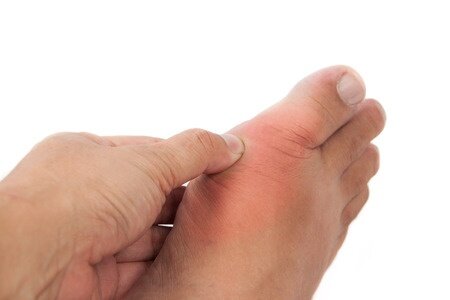Foot Pain and Heart Disease: What’s the Connection?
Peripheral Arterial Disease (PAD) is the restriction of blood flow in the arteries of the leg. And because February is American Heart Month, today Dr. Mark Thompson and Dr. Brandon Holloway of Amarillo Foot Specialists are discussing the connection between your feet and your heart health.
The existence of PAD may be a sign of more extensive arterial disease in the body that can affect the heart, causing a heart attack or the brain, causing a stroke.
Simple foot deformities (bunions, bony prominences, hammertoes) or dermatologic conditions, such as thickened, ingrown, or fungal nails can worsen when PAD occurs.
Because the legs and feet of someone with PAD do not have normal blood flow, seemingly small problems, such as blisters, sores, or cuts can result in serious complications.
Having both PAD and diabetes further elevates the potential for foot issues. Diabetics often experience neuropathy, which is nerve damage that can cause numbness in the feet, so they don’t feel pain when foot problems develop.
When neuropathy develops in people with PAD, ulcers can develop and may never heal. For this reason, diabetes and PAD are common causes of leg or foot amputations in the country.
Avoiding Complications from PAD
To avoid complications, people with PAD should adhere to the following precautionary measures:
Cleanse your feet every day using warm water and mild soap, then dry them, especially between the toes.
Apply a thin layer of moisturizing lotion (that doesn’t contain alcohol) over the top and bottom of your feet, but not between the toes.
To prevent cuts and abrasions, never go barefoot, even when indoors.
When buying new shoes, have them expertly fitted and wear seamless socks to avoid getting sores.
Examine your feet daily for cuts, bruises, breaks in the skin, rashes, corns, calluses, sores, blisters, red spots, swelling, toenail infections, ingrown toenails or pain.
Trim toenails straight across, keeping edges rounded to avoid ingrown toenails.
If you develop these or any other foot problems, contact Dr. Mark Thompson and Dr. Brandon Holloway of Amarillo Foot Specialists located in the Amarillo, TX panhandle today at (806) 322-3338 to schedule an appointment.

